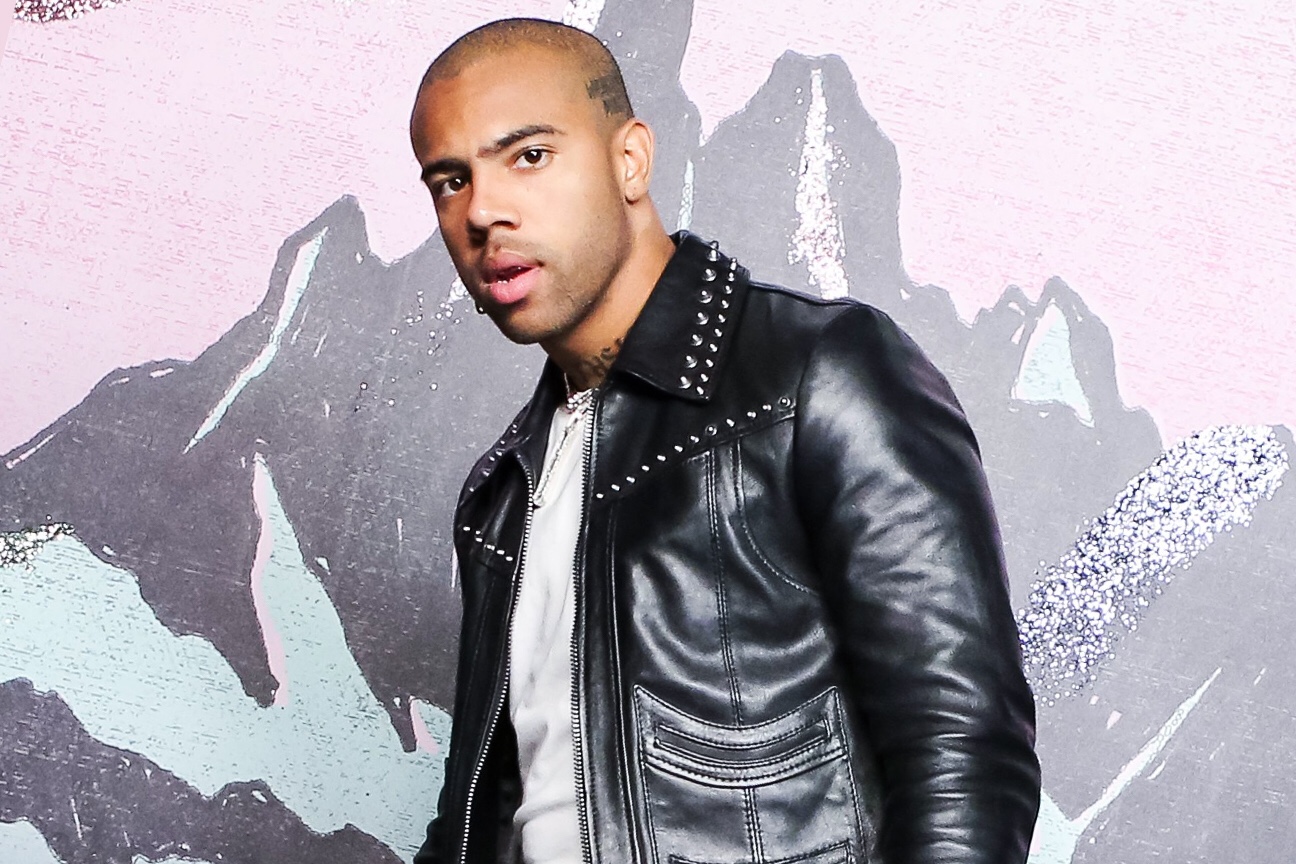By Mauricio Peña
CHICAGO — As Chicago gears up for the sale of recreational marijuana Jan. 1, rapper Vic Mensa wants to see legal weed be more than just an opportunity for lawmakers to balance the budget.
Mensa sees it as a chance for elected officials to right the wrongs the war on drugs has had on black and brown lives across Chicago and Illinois. But for that to happen, black and brown people need to be at the table, not just as employees but as entrepreneurs learning the skills to eventually open their own dispensaries.
That’s why he’s partnering with his friend, poet and activist Malcolm London, to open a dispensary and cultivation facility near Bronzeville or Hyde Park.
As part of the plan, Mensa, a Hyde Park native, and London want to bring a dispensary with a greenhouse facility to the area as a way to teach neighbors how to start their own weed business.
“Our goal is to break into the industry and use that to bring people along with us … by passing along the skill set to people in the community to build their own businesses,” Mensa said.
Beyond the cultivation of cannabis, Mensa wants the site to serve as an indoor urban garden where kids can learn to grow produce that will be sold at farmers markets. Mensa, whose nonprofit Save Money Save Life works to address gun violence and other issues in underserved communities, hopes teaching children to plant, cultivate and harvest food will improve access to fresh foods on the South and West sides.
“We all know the impact that the war on drugs and the criminalization of marijuana … has had on our black and brown communities on the South Side and West Side,” Mensa said. “I’ve had countless friends and family members ensnared in a cycle of litigation, probation, incarceration and parole that oftentimes started with a weed charge and developed into a monkey on their back that has followed them around for the rest of their life.
“With this, we aim to integrate the community in a way where we are teaching cultivation skills, urban farming to kids and up cycling into teaching adults how to run their own growth.”
London said they want to provide entrepreneurial guidance to people who have been incarcerated because of marijuana convictions.
“We want to work with and work for those who are directly impacted,” London said. “We want to provide tangible skills, a pathway of economic development, financial literacy and teach folks how to be viable in this business.”
As public opinion and laws shift around cannabis, Mensa said it’s “imperative that young black people be part of the process.”
“You look at the industry nationwide, it is largely devoid of the people who have suffered the most from the criminalization of this plant,” he said.
Now that there’s a change, Mensa said the state has an opportunity to fulfill its promise on the social-equity component of the new law.
Mensa said that while immediate license holders for recreational marijuana are white, he is “hopeful the state will make good on the promises” and have a “truly inclusive process” that includes the black community in the next round of licenses.
Mensa and London aren’t the only ones concerned about a lack of diversity in weed ownership.
Earlier this month, the Aldermanic Black Caucus pushed to delay recreational sales until July 1 because of a lack of minority representation in the lottery system that saw all white owners selected. Despite their efforts, that move ultimately failed in a heated City Council meeting last week.
And Ald. Walter Burnett Jr. (27th) has said he won’t approve any dispensaries in his ward unless license holders have a minority partner.
London said he was proud of the Black Caucus for taking a stand.
“The Black Caucus’ concern is the same concerns that I have,” London said. “Historically, when there is an incredible opportunity, there is never equal access. And so for an industry that has this much potential … you get skeptical of who has the power to do and be successful.
“I’m proud of any politician … trying to make sure [this] does what it is intended to do, which is to serve the black and brown folks from disadvantaged communities.”
Despite the current situation, London is hopeful black and brown people will have a “genuine, equal opportunity in securing a license statewide.”
Mensa’s first goal is to bring the greenhouse, urban farming and entrepreneurial education component to the South Side and is preparing to apply for a license now. Longterm, he aims to expand this model to other locations in the state and nation to empower black and brown people disenfranchised by the criminalization of marijuana.
In May 2020, the state will issue 75 dispensary licenses to new applicants, including social-equity applicants.
“Above all, I want to see black people be given a real shot and have a real opportunity to build something from the trauma that we’ve experienced surrounding marijuana,” Mensa said.
“We are just young artists trying to make a change in the world, specifically at this moment, make a change in this industry,” he said. “The goal is to teach people how to fish.”










